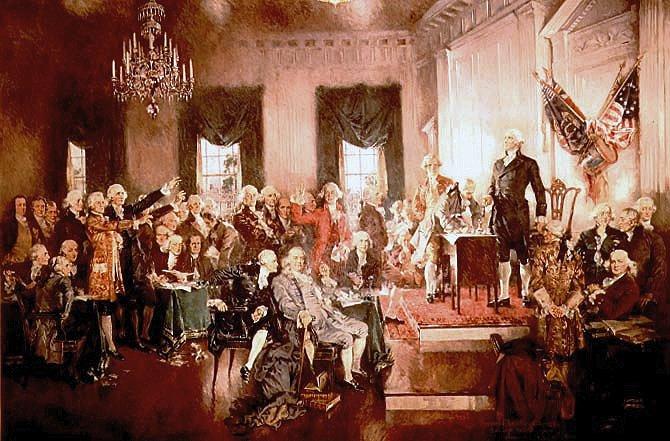Come on, guys, let’s compromise!
September 13, 2011
Gaels, are you ready to party like it is 1787? No, I’m not talking about a colonial American costume party, although now that you mention it, that doesn’t sound like a bad idea. I’m talking about celebrating Constitution Day on Saturday!
What’s that, Gaels? You didn’t know that Saturday was the 224nd anniversary of the signing of the United States Constitution? Well, I’m sorry that you have to find out this way, but the lack of knowledge on American constitutional history is means for expulsion from the union.
Since this might be your first offense, I’ll let you off easy (although the next time this happens, you will be rightfully dubbed a communist). What I find most intriguing about the Constitution is the fact that it is a Constitution of compromises. Anyone who has seen the Connecticut license plate knows that it says “The Constitution State,” in honor of the Connecticut Compromise which established the bicameral legislative body—the House of Representatives and the Senate—that still exists today.
Delegates continued to work together to compromise on critical (and disturbing) issues such as slavery, introducing the three fifths compromise in order to appease slave holders—placing the unification and strength of the states above the moral question of racial equality. During the hot summer, the delegates in Philadelphia argued and discussed the weaknesses of the Articles of Confederation, further strengthening the government and establishing a Constitution that has been the “supreme law of the land” for more than two centuries.
“Amanda, what’s up with the history lesson, you ask?” Well, here’s the situation, Gaels. It seems to me that the spirit of compromise once held by our Founding Fathers has faded from the political arena. Let’s take for example the debt crisis from this summer.
If you happened to turn on CNN, Fox News, MSNBC or any news network for that matter during the two weeks leading to Aug. 2, you would have noticed a clock ticking away the days left before the nation defaulted on its debt. On every network, anchors or political experts would call for compromise on the part of both Democrats and Republicans.
Yet, meetings between the president, the speaker and other top Washington officials often went sour and the American people watched as the executive and the legislature failed to come up with a cohesive agreement. The satirical newspaper “The Onion” published an article that most aptly described the crisis entitled, “Congress Continues Debate over Whether Or Not Nation Should Be Economically default.” “I don’t know, John, that sounds a bit







